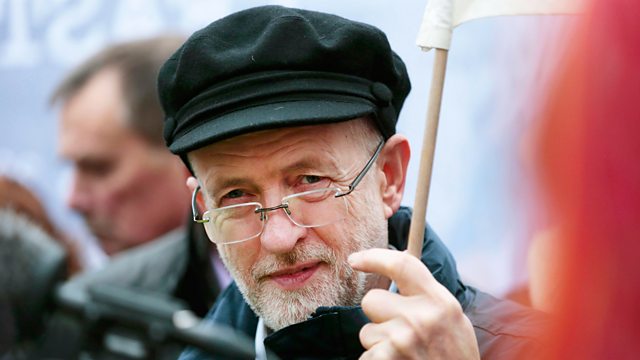Labour and the Bomb
As Jeremy Corbyn seeks to change Labour's policy on nuclear deterrence, the veteran political reporter John Sergeant examines the party's troubled relationship with 'the bomb'.
Jeremy Corbyn's opposition to the renewal of Britain's nuclear deterrent has opened up divisions within the Labour Party that run very deep. The issue will come to a head when Parliament votes on whether to replace the Trident weapons system, following a recommendation from the Government. While Labour formally reviews its position, will Corbyn be able avoid a damaging split that beset the party in the 1980s?
It was a Labour government which decided to make Britain a nuclear power. "We've got to have this thing, whatever it costs. We've got to have a bloody Union Jack on top of it," declared Ernest Bevin, Foreign Secretary in the postwar Labour government. Ever since that decision in 1946, the question of whether to keep 'the bomb' has divided the party between those who believe it is the cornerstone of Britain's defence policy within NATO and others who have long campaigned to rid the world of nuclear weapons. Twice before in Opposition the party has opted for unilateral disarmament, only for the policy to be reversed after a period of acrimonious debate and electoral defeat.
In this programme, the veteran political reporter John Sergeant examines Labour's troubled relationship with the bomb. Former party leader Neil Kinnock and other senior figures reflect on how the party discarded unilateralism in the late 1980s and offer advice on what lessons can be learned. Can Jeremy Corbyn overcome opposition with the Parliamentary Labour Party to changing the official policy of multilateral disarmament? Does his recent suggestion of maintaining submarines without nuclear missiles satisfy those who want Britain to disarm come what may?
Producer: Peter Snowdon.
Last on
More episodes
Previous
Next
Broadcasts
- Mon 29 Feb 2016 20:30Βι¶ΉΤΌΕΔ Radio 4
- Sun 6 Mar 2016 21:30Βι¶ΉΤΌΕΔ Radio 4
Podcast
-
![]()
Analysis
Programme examining the ideas and forces which shape public policy in Britain and abroad.


